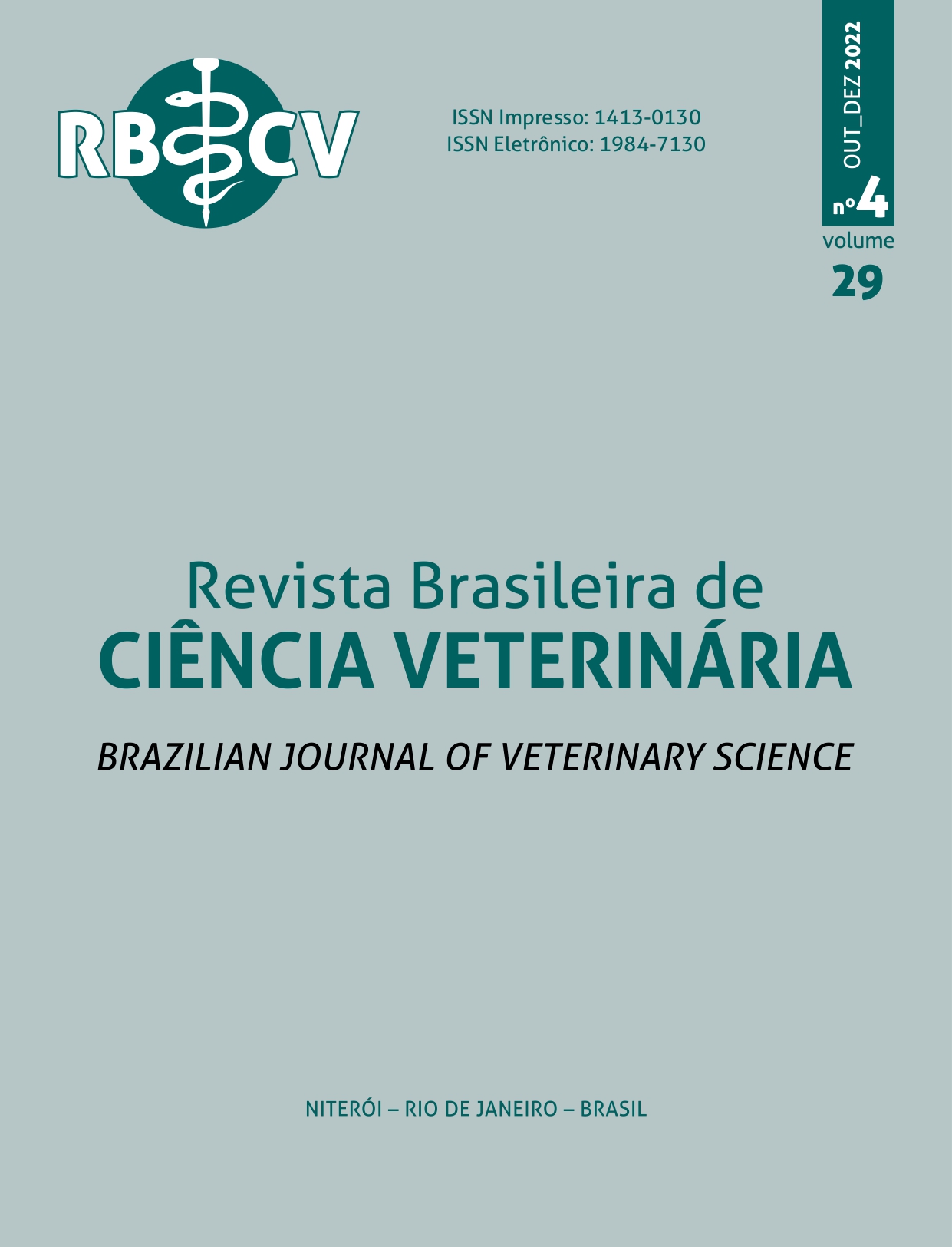Linfoma extranodal de células B em vesícula urinária de um cão
Resumo
O linfoma é uma neoplasia de alta recorrência na rotina oncológica de medicina veterinária. Pode ser classificado em linfoma Hodgking-liked, com raros casos descritos somente em felinos, e não Hodgking, sendo este segundo o mais comum, subdividido em linfomas B ou T. O objetivo deste trabalho foi relatar a conduta clínica, diagnóstica e terapêutica do caso de uma cadela, de 12 anos, sem raça definida, que manifestava disúria, prostração, dor abdominal e ao exame físico a presença de uma massa na região hipogástrica. Esta foi diagnosticada com linfoma de grandes células por meio de exames de citologia e biópsia, com solicitação do exame de imunoistoquímica que confirmou linfoma difuso de grandes células de imunofenótipo B. Sem o envolvimento de nenhum outro sistema, classificou-se como linfoma primário de bexiga extranodal. O animal passou pelo tratamento quimioterápico realizando nove sessões de quimioterapia pelo protocolo de CHOP, contudo devido ao agravamento do caso a paciente veio a óbito cerca de sete meses após o diagnóstico da doença. O caso estudado foi de extrema importância para a compreensão de linfomas primários de bexiga em razão da escassez de informações relacionadas na literatura. Ainda, o cão é um excelente modelo experimental de linfomas não Hodgking em humanos, consequentemente compreender essa doença em cães promove a evolução conjunta da medicina humana.


